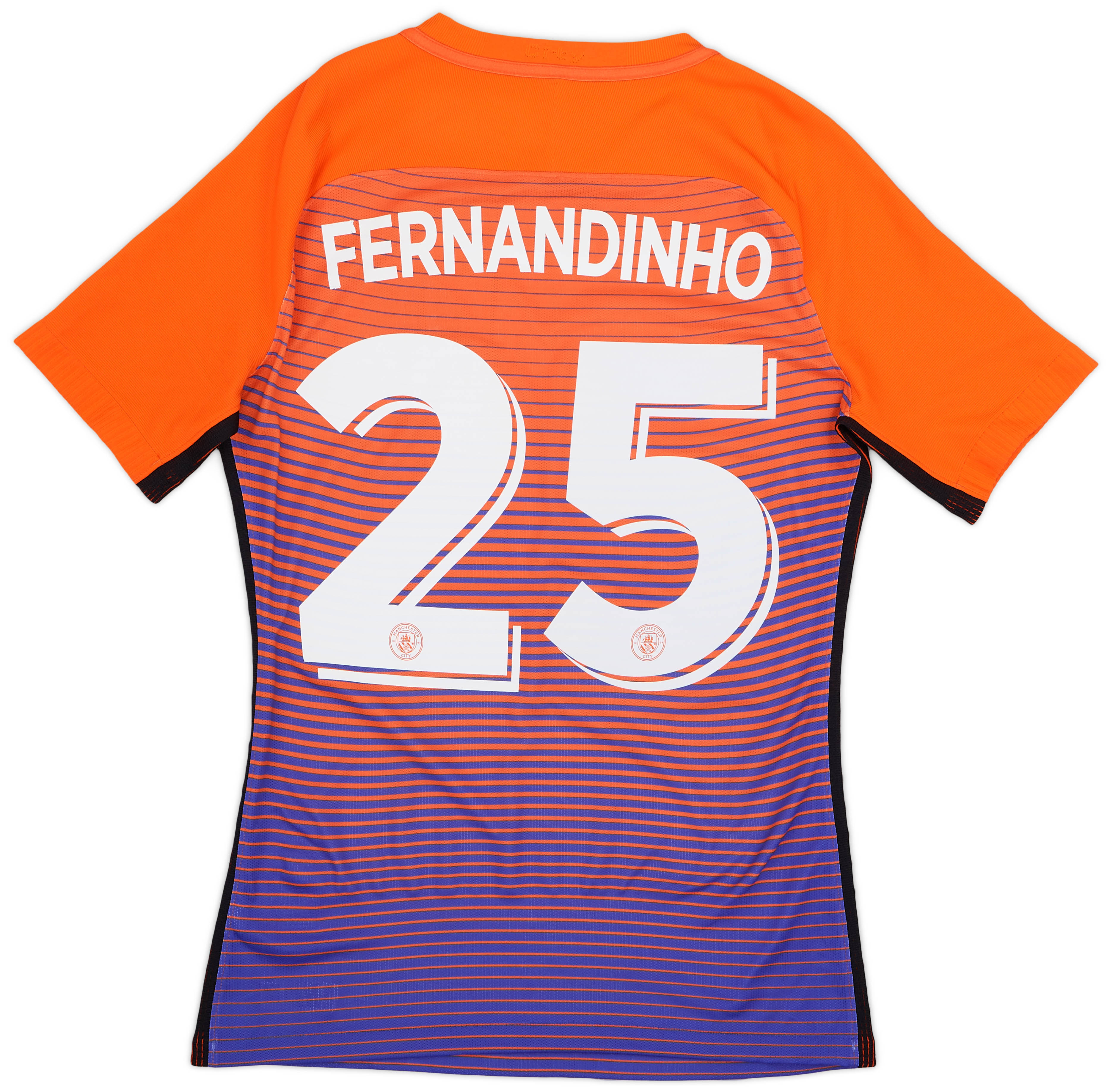Fernandinho
Introduction The retro football shirt worn by Fernandinho represents a significant era in football history. As a midfielder, Fernandinho showcased his skills while donning this iconic jersey. Collectors and fans cherish this retro football shirt, celebrating both the man and the club behind it. This shirt encapsulates a time marked by triumphs and unforgettable moments […]
2016-17 Manchester City Authentic Third Shirt Fernandinho #25 - 9/10 - (M)
148.99£ - ca: €176
Introduction
The retro football shirt worn by Fernandinho represents a significant era in football history. As a midfielder, Fernandinho showcased his skills while donning this iconic jersey. Collectors and fans cherish this retro football shirt, celebrating both the man and the club behind it. This shirt encapsulates a time marked by triumphs and unforgettable moments in the sport.
Player’s Career
Fernandinho, full name Fernando Luiz Roza, began his career in Brazil, playing for Atlético Paranaense. He made his debut in 2002 and quickly gained recognition for his robust playing style. In 2013, he signed with Manchester City, marking a pivotal moment in his career. At City, he transformed into one of the league’s top midfielders. Over the next decade, Fernandinho became a key figure, with both defensive prowess and offensive capabilities. He was known for his exceptional passing and leadership on the field.
Achievements
During his time at Manchester City, Fernandinho achieved remarkable success. He helped the club secure five Premier League titles between 2014 and 2022. Additionally, he contributed to two FA Cup victories and six League Cup triumphs. His leadership solidified his role as team captain, especially during pivotal matches. Fernandinho also played a crucial role in City’s first-ever UEFA Champions League trophy win in 2023. Throughout his career, he made over 300 appearances for the club, solidifying his legacy as one of the best players in City’s history.
Notable Moments
Fernandinho’s career at Manchester City is filled with notable moments wearing the retro shirt. One highlight came during the 2018-2019 season, when he scored a crucial goal against Liverpool, helping City clinch the Premier League title. Another memorable match occurred in 2021, when he led the team in a comeback against Aston Villa, showcasing his resilience. His performance in the 2023 Champions League final was instrumental, contributing significantly to City’s victory. These moments define his impact on the club and encapsulate why fans treasure the retro shirt he wore during these times.
Shirt Design and Features
The retro football shirt worn by Fernandinho features a distinct design that resonates with the fans. The primary color is a vibrant sky blue, symbolizing Manchester City. It features white accents and is styled with the classic City crest on the left chest. The fabric is lightweight and breathable, designed for optimal performance on the field. One unique characteristic of this shirt is the pattern, which blends stripes incorporating both modern and traditional elements. This combination pays homage to the club’s rich history while embracing progressive design in football apparel.
Fan Significance
This retro football shirt holds significant meaning for City fans. It represents an era filled with winning traditions and exciting football. The shirt serves as a reminder of Fernandinho’s extraordinary contributions to the club. Fans proudly wear it during match days, celebrating their team’s achievements. Moreover, the shirt became a symbol of unity among supporters. During tough times and triumphant moments, this jersey encapsulated the spirit of the City faithful, making it a beloved piece of memorabilia.
Conclusion
The retro football shirt worn by Fernandinho symbolizes more than just fabric; it embodies a journey filled with passion and success. From his remarkable career milestones to the unforgettable moments on the pitch, this shirt represents a pivotal chapter in Manchester City’s history. Fans continue to cherish it as part of football lore. As we celebrate the legacy of Fernandinho and the impact of this shirt, we understand its importance in the fabric of football heritage.
